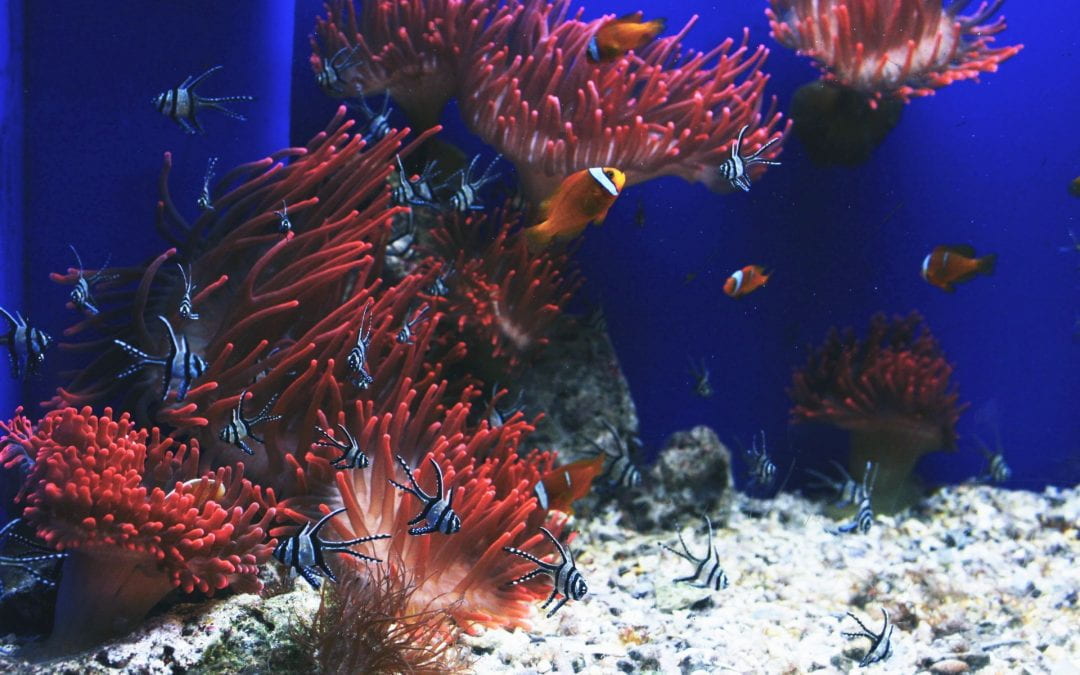Interview with Professor Simon Thrush (head of the Institute of Marine Science, University of Auckland)
Your research focuses on ecosystem tipping points. What are they?
A tipping point is a sudden, abrupt, often dramatic change in the way that a natural ecosystem functions.
What that means is, often we’ll be surprised when we pass a tipping point because we obviously haven’t been expecting it.
| FACT BOX: |
| Tipping points happen suddenly when stressors (including those caused by people) change connections between ecosystem components. |
| The ecosystem loses resilience and rapidly changes, often, to a deteriorated state. Once changed, recovery is very slow. |
How do tipping points affect us?
Let’s think about a fish species that we love to eat and is supporting a lot of economic activity and is maybe also doing something important within that ecosystem.
So all of a sudden we lose that fish species, and now there are no jobs, there are no incomes. The changes in the ecology of the ocean are going to be profound because we have lost this important species in this system.
| FACT BOX | |
| Tipping point example: | 1992 Canadian cod fish collapse – no recovery despite fishing bans |
| Cause: | Overfishing |
| Impacts: | Fisheries closure; economic effects on local communities; food web disruptions |
| Tipping point risk (New Zealand): | Historical decline in snapper (83%) and crayfish (76%) in the Hauraki Gulf |
| Cause: | Overfishing |
| Impacts: | Food web disruptions: Snapper & crayfish decline à sea urchins increase à kelp forest decline |
That makes me relate tipping points to the straw that broke the camel’s back! Are there other examples? What else can cause them besides overfishing?
One good example of a tipping point in a marine context are the creation of dead zones in our coastal oceans. There are two important processes when you think about a dead zone.
What happens in a dead zone is that too much material is decomposing on the sea floor, sucking up all the oxygen and suffocating all the animals.
When I am talking about organic materials, I just want to make myself clear with a couple of examples. So we have waste material that runs off the land, that could be sewage, it can be coming out of dairy sheds, and pig farms. We have nutrients and fertiliser that come off the land as a consequence of us perhaps putting a bit too much on in the first place, and it runs off into the rivers and streams and into the coastal zone. Those materials fuel plant production within the coastal ocean and that plant production ends up sinking on the sea floor as organic material.
If we have a very layered water mass where parts of the water mass don’t mix very well, that is going to increase the probability of suffocating the seafloor. So the cumulative effects of those two things together is such that we are much more likely to see those dead zones when both those phenomenon come into play.
Sounds like we should avoid tipping points! What can we do about it?
Simply put, in terms of what we can do about this. We can deplete the resources less, not use them to the max. We can reserve some areas, and not use them at all.
We might have policies that support the creation of marine reserves and support the implementation of marine spatial planning practices that allow us to decrease some of the stressors.
And we can have a smaller footprint on what’s happening around us. Now what that means to an individual is – use less resources, don’t create more waste than you need to, but also start to think about the world you live in and the policies and the actions you can take.
Besides individual actions what can people do collectively?
We are seeing that today, when we are recording this, there are school kids on the streets complaining about climate change and protesting about climate change. They are asking for radical change because what we are doing is not good enough.
They are not concerned about short economic benefits. They are concerned about having a future. So that they can get to live for the next 60 to 80 years on a planet that will support human life.
So we are thinking about climate change, our oceans are intimately connected to how our climate works. As well as thinking about climate change policy we need to be thinking about how are we interacting with our oceans and how are we using them.
But also we need to think about maintaining the biodiversity and the functioning of these systems and we need to have a rethink about our oceans policy that allows us to facilitate the continuation of life in our oceans.
| What can people do? |
| Collectively, use power as tax-payers and voters to demand for: |
| · Effective marine spatial management practices
· Policies that support creation of more marine reserves · Policies that balance fishing rights with ecosystem tipping points · Resource Management Act enforcement to minimise pollutions and runoff from land-based activities |
| As an individual: |
| · Encourage others to support the above
· Minimise garden fertilisers, chemicals, and oils that go down the drain and end up in the oceans · Vote for the future · Buy wisely |
Disclaimer: The ideas expressed in this discussion reflect the views of the participants and not necessarily the views of The Big Q.
You might also like:
What are tipping points and what do they mean for our ecosystems? 🔊
Are our oceans under threat? 🔊

